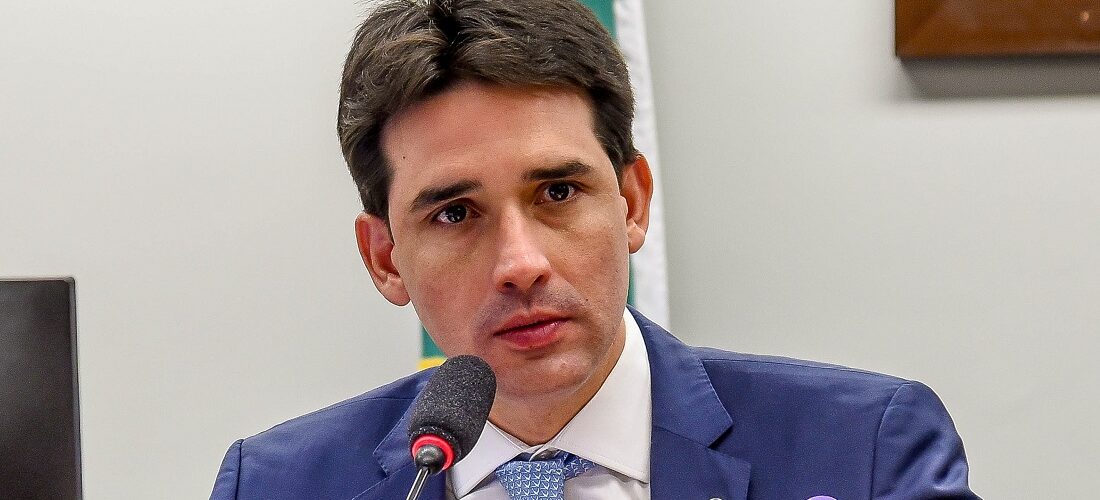
Minister eyes R$20bn to accelerate investments in ports, airports
Oct, 01, 2024 Posted by Gabriel MalheirosWeek 202439
With a modest federal budget—just R$2.4 billion for 2024—the Ministry of Ports and Airports is banking on using funds tied to the body to boost investments in the industry. The Merchant Marine Fund (FMM) alone has R$13 billion in cash, while the National Civil Aviation Fund (FNAC), which recently had its accounting structure changed by law, has another R$8.1 billion. Of this, R$6 billion has already been requested by the ministry from the economic team to be used in civil aviation this year, pending changes to budget legislation.
Together, the two funds could reach R$19 billion in available funds, a figure that could surpass R$20 billion, depending on additional revenue projected for the rest of the year.
From the beginning of Lula administration in January 2023 through September, the ministry, via the FMM’s board of directors, authorized 1,158 projects to move forward with the next steps in securing loan agreements with accredited banks. Investments linked to these projects total R$34.56 billion, with R$20.8 billion approved just this year—an amount that may increase after the council’s final meeting of 2024. The funds are not released all at once but according to the stages of project implementation. Of the total approved since last year, only R$1.59 billion was contracted, and R$1.32 billion disbursed.
Regarding the FMM, the goal is to reach a disbursement flow of at least R$5 billion per year. “There was no prioritization of this industry under the previous government. Projects were approved, but there was hardly any disbursement. More than R$22 billion entered the Merchant Marine Fund during the previous administration, but disappeared in the general budget,” Mr. Costa Filho said.
In an interview with Valor, Mr. Costa Filho emphasized that the government’s key strategy with the FMM is to revive investments in the Brazilian naval industry, despite the traumatic experience during the Rousseff administration. A decade ago, the plan to build large ships and rigs in national shipyards was derailed by corruption scandals revealed by the Car Wash anti-corruption task force. For Mr. Costa Filho, there is a new chapter with the improvement of resource management models and governance in banks and state-owned companies.
Another recent change to the fund was the allocation of 30% of the resources to infrastructure projects in ports (maritime and river) and waterways. “This is the first time we’re advancing with Merchant Marine Fund resources for strategic port projects that are also validated by the new PAC [Growth Acceleration Program],” said Mr. Costa Filho, referring to Ordinance 424/24, signed at the beginning of September.
As for the FNAC, the fund will now have an accounting structure similar to that of the FMM, following the newly approved General Tourism Act. The civil aviation fund, composed of revenue from fees collected from concessioned airports, did not previously return resources to the sector. This year, for example, of the R$8.1 billion available, only R$400 million is earmarked for investment in the federal budget.
Mr. Costa Filho aims to have the civil aviation fund’s resources also offered as loans to strategic government projects. He said that just as the FMM finances the national shipping industry, the FNAC should support airlines in financing operations in the country and acquiring aircraft from Brazilian aircraft maker Embraer.
Mr. Costa Filho said that acquiring equipment abroad will be allowed with FNAC resources, but companies choosing domestic purchases will have preference. “They will undoubtedly receive greater attention from the government for valuing local content. However, we respect the free market,” he said.
By offering loans through the FMM and FNAC, the Ministry of Ports and Airports avoids competing for federal resources. Financing, when offered as loans, does not impact the primary fiscal result since it is considered a financial expense.
Early last year, the National Confederation of Industry (CNT) issued a report outlining concerns over the use of the FMM, particularly regarding the interruption of resource flows and the misuse of funds. “The greatest challenge is the contingency of resources, which could cause significant damage to the sector, such as infrastructure deterioration and the halting of all projects,” the entity said in a statement to the industry. “Moreover, the CNT advocates for efficient resource management to ensure funds are used where they are truly needed,” it added.
Source: Valor Econômico International
Original reporting: https://valorinternational.globo.com/economy/news/2024/10/01/minister-eyes-r20bn-to-accelerate-investments-in-ports-airports.ghtml
-
Ports and Terminals
Sep, 27, 2024
0
Porto Itapoá Announces Ambitious Expansion Plan Aiming South America’s Top Spot by 2023
-
Ports and Terminals
Jul, 25, 2023
0
Gaúcho ports register an increase in handling
-
Other Logistics
Apr, 16, 2019
0
Brazil pledges loans to truckers in attempt to avoid strikes
-
Grains
Nov, 09, 2022
0
Argentina’s farmers notch sales of more than 70% of soybean crop



